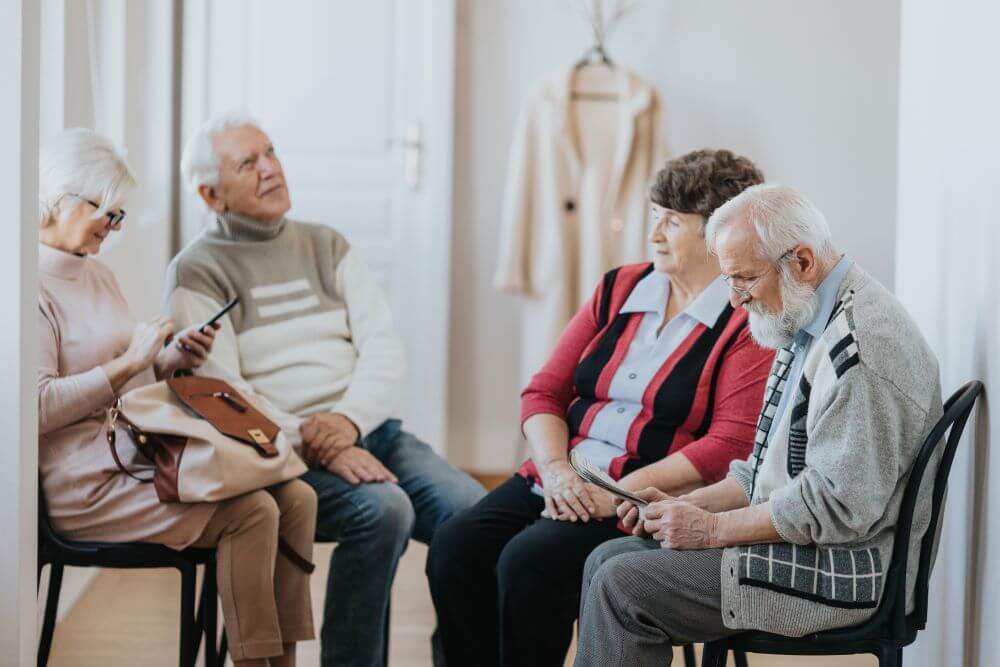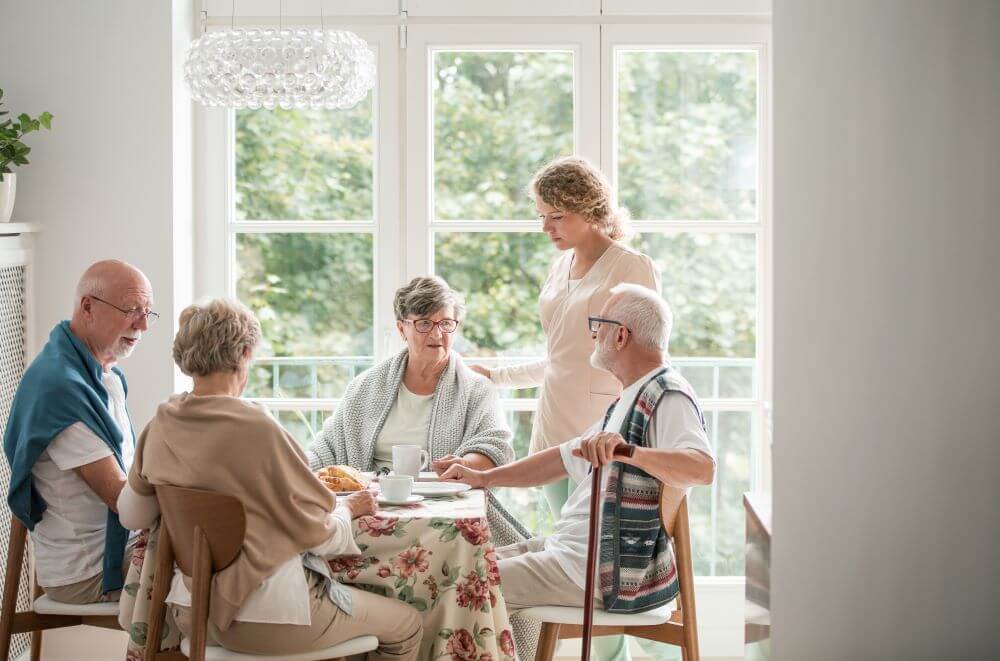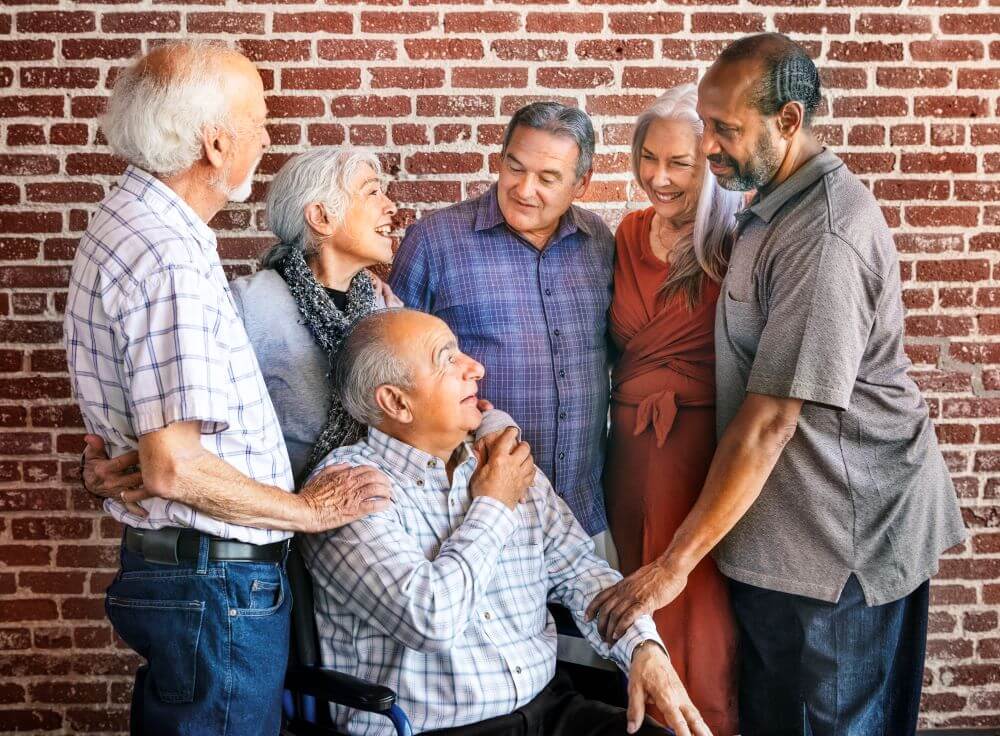Welcome to our blog post about caring for a loved one with dementia. If you’re reading this, chances are you’re already familiar with the challenges of being a caregiver. Dementia can be a complex and emotionally demanding condition for both the person affected and those around them. In this article, we’ll discuss why dementia caregivers need more dementia family help at home. We will also share some practical tips on how to get other family members involved in providing care and support.
Understanding Dementia:
Before we delve into the importance of additional support, let’s take a moment to understand what dementia is. Dementia is not a single disease but a general term for a decline in cognitive abilities severe enough to interfere with daily life. Alzheimer’s disease is the most common form of dementia, but there are other types as well. Some common symptoms are memory loss, confusion, difficulty communicating, and behavior changes. You can learn more about the different types of Dementia HERE.
The Importance of Home Care:
For someone with dementia, the familiar environment of home can provide a sense of comfort and security. However, caring for a person with dementia at home can overwhelm one caregiver. It requires continuous attention, patience, and a lot of love. As the primary caregiver, you may sometimes feel exhausted and need help.
Why Getting DEMENTIA Family Help is Crucial:
As the saying goes, “It takes a village.” Caring for a loved one with dementia is no exception. Enlisting the support of other family members is essential for several reasons:
- It prevents caregiver burnout and allows you to maintain your well-being.
- It ensures that your loved one receives consistent and quality care from multiple sources.
- It strengthens family bonds by coming together to support a common cause.

Communicating with Family Members:
When it comes to discussing dementia caregiving with other family members, communication is key. While it might be difficult to initiate the conversation, remember that your loved one’s well-being is at stake. The entire family’s support can make a significant difference. Here are some tips to help you navigate this crucial conversation:
Choose the Right Time:
Pick a time when everyone is relaxed and not preoccupied with other commitments. Avoid discussing it during family gatherings or holidays when emotions may already be running high.
Be Honest About Your Feelings:
Start the conversation by expressing your emotions and experiences as a caregiver. Let them know that while you are committed to providing care, you also need their help and support.
Explain Dementia:
Many people may not fully understand what dementia entails. They may think it is simply about forgetting. They may not understand its impact on the person affected and the caregiver. Take the time to educate your family members about the disease, its symptoms, and how it affects your loved one’s daily life.
Share Your Challenges:
Be open about the challenges you face as a caregiver. Discuss the physical and emotional toll it can take on you. Let them know how involving other family members can lighten the load.
Ask for dementia family Help:
Many caregivers feel family members and friends should see they need help. They wait for them to offer their help, which may not come. Please, recognize that many people don’t take cues or hints very well! You need to make your needs known.
Create a Caregiving Plan:
Work together with other family members to create a caregiving plan. This plan should outline the roles and responsibilities of each family member. It should also consider their strengths, availability, and preferences. Be flexible and willing to accommodate individual schedules and limitations. Create a revolving monthly calendar. Don’t wait until the disease is well advanced and you are overwhelmed, frustrated, or burnt-out.
Encourage Questions and Input:
Encourage family members to ask questions and share their thoughts and concerns. Be patient and understanding. Some might need time to process the information before committing to specific responsibilities.

How Dementia Family Members Can Help:
Once you’ve successfully communicated the importance of their involvement, it’s time to assign responsibilities. Family members can contribute in various ways to support the person with dementia and the primary caregiver:

Companionship:
Spending quality time with your loved one is one of the most valuable ways family members can help. Engage in activities your loved one enjoys, such as listening to music, looking through old photo albums, or going for walks. Companionship can reduce feelings of isolation. It can also help improve the person’s overall mood and well-being.

Assistance with Daily Tasks:
Dividing daily tasks among family members can make a significant difference in the caregiver’s workload. Tasks such as meal preparation, housekeeping, and personal care can be shared. This will give the primary caregiver more time to rest and focus on other aspects of caregiving.

Emotional Support:
Dementia caregiving can be emotionally taxing for everyone involved. Family members can support the primary caregiver emotionally by being good listeners and providing encouragement. Sometimes, a heartfelt conversation or a supportive shoulder can make a world of difference.

Research and Education:
Encourage family members to educate themselves about dementia. Understanding the condition and its progression can help family members communicate more effectively with the person affected. It can also prepare them for potential challenges and ensure they respond with empathy and patience. You can find more about research HERE.

Respite Care:
Consider arranging for respite care. This is where other family members or professional caregivers step in temporarily. They provide temporary relief to the primary caregiver. This allows the caregiver to take a break, rest, and recharge, reducing the risk of burnout.

Financial and Legal Support:
Caring for a loved one with dementia can bring about financial and legal challenges. Family members can help by assisting with financial planning, managing legal matters, and exploring available resources and support services.
Remember, each family member may have different abilities and limitations. You will need to be understanding and flexible when allocating responsibilities. The primary goal is to work together as a team, supporting each other and providing the best care possible for your loved one with dementia.

Seeking Professional Help:
In some cases, the care needs of a person with dementia may exceed what family members can provide at home. Seeking professional help, such as hiring a home caregiver or exploring adult day care services, can offer additional support and respite for the family.
Conclusion:
Caring for a loved one with dementia can be both rewarding and challenging. As a caregiver, remember that it’s okay to ask for help and seek support from family members. By sharing the responsibilities, you can provide the best care possible for your loved one while also taking care of yourself.
In conclusion, as a family, coming together and supporting each other during this journey can make all the difference in the world. Embrace this opportunity to strengthen your family bonds and create cherished memories, even in the face of dementia.
Hi, I'm Larea, I am a Registered Nurse specializing in Dementia Care, with 30 years of experience supporting dementia patients and their families. Over the years, I have provided care in diverse settings, including homes, hospitals, nursing homes, assisted living facilities, and hospice. My passion is guiding caregivers, sharing my knowledge and experience to help them navigate the challenges of dementia care with confidence and compassion.








